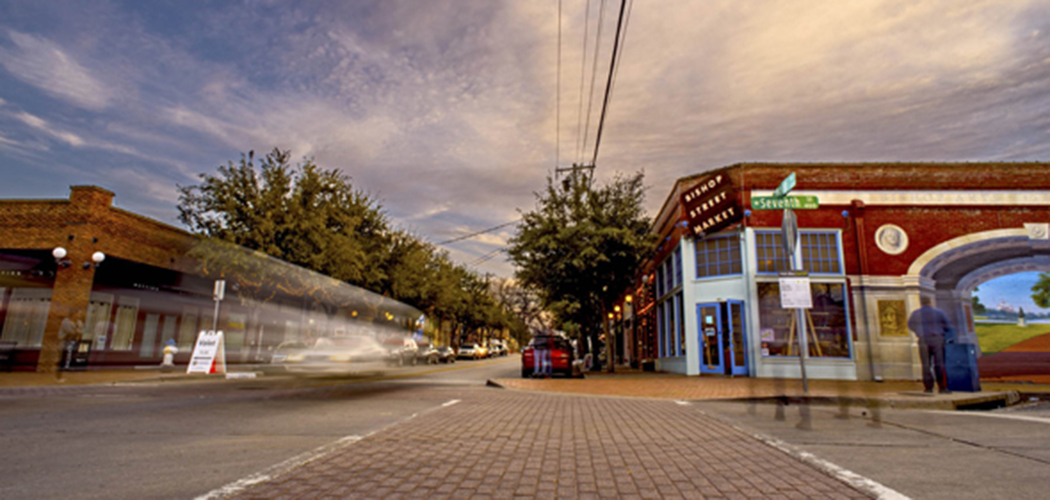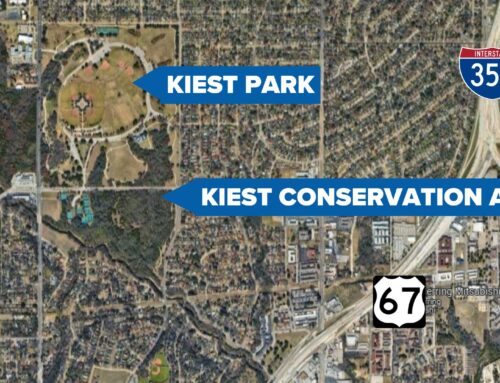A consulting firm has been contracted by the city to establish a Public Improvement District in business-heavy Bishop Arts and Jefferson Blvd. in the coming months, City Council member Chad West said Tuesday.
Created and funded by property owners, PIDs are special property tax assessments that supplement community needs outside of existing city services. In Dallas, the maximum PID assessment is $0.15 per $100 valuation.
PID’s have been attempted in North Oak Cliff multiple times in the past, but “failed to garner support.” A 2014 attempt to create a PID in the neighborhood around Bishop Arts estimated that a 12-cent tax would raise $160,000 annually for community projects and improvements.
While West believes passing a PID will “likely be an uphill battle,” he hopes the firm will help “educate folks on the benefit” of the designation. He is “not aware” of a consulting firm helping with the creation of a PID previously.
The firm, Trinity Public Affairs, is a local- and women-owned firm.
“We have long supported this idea and – through our conversations with Council members and area civic and business leaders – believe that this initiative could be successful at this time,” a letter from Trinity Public Affairs to city officials said. “As the first public improvement district south of the Trinity River, this PID would encourage and advance equitable economic growth in Dallas.”
The city has agreed to pay as much as $71,000 through February 2024 for the firm’s services in implementing the PID, a city contract showed.
The firm’s work will begin “over the next few months,” with the contract showing the first phase of establishing the PID finishing by July 31. The first phase will include meeting with community members and property owners to identify priorities in spending for services and improvements, developing the PID boundaries and using city data to decide on the tax assessment for the PID.
If community support for the PID is garnered, phase two will include collecting signatures of support for the city to review. In order for the city council to consider a PID application, signatures of at least 60% of property owners in commercial and mixed use PIDs and 66.7% of property owners in single-family PIDs must be represented in a petition.
While PID applications are typically community driven, West is pursuing the designation after receiving “weekly requests” from small business owners and property owners seeking additional services.
West said he thinks the area could benefit from additional security, lighting and beautification, efforts to aid the homeless population, support for cultural organizations and support for small businesses, all of which could be PID funded.
“It will only happen if small businesses and property owners can believe that it will be effective and worth the cost. I have seen the great work by other PIDs such as Downtown Dallas, Inc.,” West said. “It could be a huge benefit for our communities if established correctly and with ample community engagement.”
The city currently has 14 approved PIDs, none of which are located in Oak Cliff.
If the PID is passed, a management agency will be created to oversee the implementation and finances of the assessment (for example, in the case of Downtown Dallas’s 1992 PID, Downtown Dallas Inc. is the managing organization.) The fee to apply for a PID is $15,000, which is reimbursed to the PID management agency in the first year assessments are collected.
Trinity Public Affairs will likely make up the executive staff of the organization for the first year, if the PID passes, West said. A board, made up of local stakeholders, will be decided on in the organization’s bylaws.
Trinity Public Affairs was not immediately available for comment at the time of publishing.






